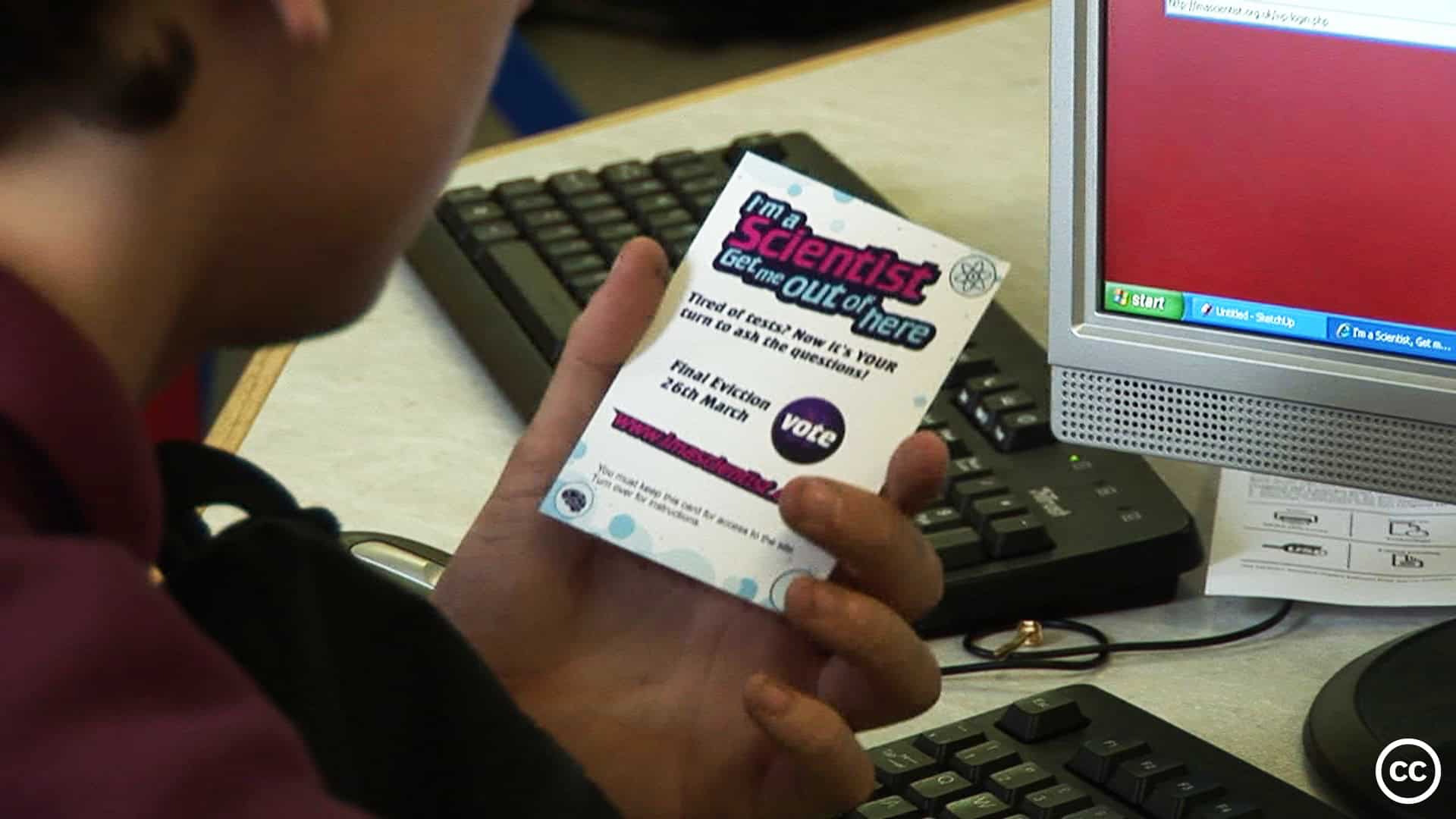In our pilot event, we did nearly all of the evaluation in-house, to save money. We tried to be as objective as possible, but of course it’s much better practice to have an independent evaluator. This year, we’ve been able to do that, and we appointed the lovely Kate Pontin to evaluate the project for us.
We are publishing the evaluation report on 2010 today (and also presenting it at the Science Council). You can also read the team’s early thoughts on this year in our write up of our Science Online London session, or see our evaluation report on the pilot.
Download full I’m a Scientist Evaluation Report 2010 (pdf)
Summary of I’m a Scientist 2010 evaluation
This report summarises the findings of the first year of formal evaluation of I’m a Scientist, Get me out of Here! and thus acts as an interim report.
I’m a Scientist creates opportunities for scientists to answer questions from students via the internet, opening dialogue, while developing skills and understanding of the science process. It also gives students an idea of what it is like to be a scientist and the types of careers available.
Evaluation data was collected from scientists, teachers and pupils via surveys, and interviews. Observations of a number of sessions in school were also undertaken.
Data suggested that the IAS programme is very successful, providing a unique approach to the communication of science to students. It shows that:
- Students gained a lot from the experience. Their feedback shows they thoroughly enjoyed the event, especially the live chat sessions. They developed key skills including focused questioning and gained confidence in scientific discussion. They found it interesting to discover more about what it is like to be a scientist and were surprised that scientists were not as stereotypical as they originally thought.
- Teachers found that IAS supported their need to develop different approaches in the classroom and also to encourage pupils to think about science and who it is actually undertaken by. They found the resources very useful, in particular the debate kit and were also pleased with the support they received from the team during the running of the event.
- Scientists also gained or developed skills in communicating with the public, explaining their work (often complex science) clearly to pupils aged 13 onwards. This in some also helped inspire and revive their enthusiasm for their own studies.
Minor improvements suggested are:
- Helping teachers to prepare pupils especially in their development of clearly focused questions
- Promote and signpost other debate lesson packs like the IVF debate, and to help conclude the event, with perhaps an assessment element.
- Further initial guidance for scientists giving guidance on the time it might take, but also for those less familiar with students of this age some general information on KS3/4 and the diverse knowledge base.
Evaluation will in 2011 focus on finding out more about how to attract scientists and about the impact their involvement has on their organisations. Longitudinal studies will look at the impact of students in the longer term (for example in take up of science or exam results). It is also hoped to develop baseline and plenary activities to find out more about change in knowledge and attitude to science.
I’m a Scientist enabled students using an innovative approach to inspire and enthuse. It worked with pupils from high achieving classes but also those across the ability range and from a wide range of backgrounds including groups from BME families.
Key figures for 2010
- Two events – March and June
- 7,459 questions asked
- 125 scientists were involved, in 25 zones
- 94,909 visits to the site
- 6397 students took part
- 648,563 page views
About the evaluator
Kate Pontin is a former geologist who has been working in museums and evaluation for over 20 years. She specialises in the experiences of young people in informal learning environments.


